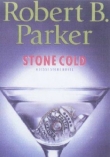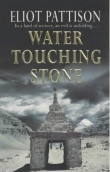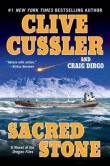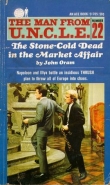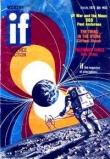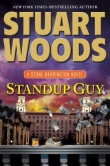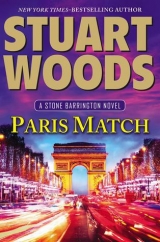
Текст книги "Paris Match"
Автор книги: Stuart Woods
Жанр:
Политические детективы
сообщить о нарушении
Текущая страница: 11 (всего у книги 15 страниц)
43
Stone had a cup of coffee with Marcel and tried to calm him down. When he went downstairs there were no guards present outside the building. He went back inside and looked around the ground floor, then he heard a banging noise and traced it to a closed door. He opened it and found a supply closet containing half a dozen people, bound and gagged, sitting on the floor.
Stone freed one of them and told him to free the others. “Then I suggest you resume your posts and do your work with more care.” He left the building and found a cab in the street. Strangely, he found comfort in being in an ordinary taxi rather than an armored van. “Saint-Germain-des-Prés,” he said to the driver in his best French, which he knew made him sound like an American schoolboy working on his pronunciation.
He wanted a day off from all this. He got out of the cab in front of the old church and began to walk, window-shopping in galleries as he went. He entered a small shop and bought a small sculpture he had seen in the window and asked that it be shipped to his home in New York. He walked for another two hours, then had a good lunch in a small restaurant. His cell phone rang several times, but he ignored it.
He passed a cinema and, on a whim, bought a ticket and saw a film in French with English subtitles, no doubt a nod to the tourists. He lost himself in the film, and when he came outside the November day was beginning to lose its light.
He stopped in another gallery and bought a picture, then he resolved to walk back to the Arrington. He was crossing a bridge over the Seine, and he stopped to have a good look at the Eiffel Tower, watching its light show. Then he looked around and found that he was alone on the bridge. Each end was blocked by black SUVs, and from both sides, men in dark clothes were approaching him. He caught a glimpse of an assault rifle and realized he had no place to go.
Then the men walking toward him began to run, and Stone took the only escape available to him. He placed his hands on the bridge’s railing and vaulted over it. The dark water rushed up at him, and he managed to enter it feet first, having no idea how far he had fallen. He grabbed a breath as the icy Seine closed over him, and he resolved to stay under as long as he could. He experienced a detailed flashback of the experience of the night before with Holly in bed, which seemed to last several minutes. He must be dying, he thought, even though it was not his life flashing before him, but visions of Holly’s body.
He broke the surface, gasping for breath. He could not have been underwater for more than half a minute, he guessed, but the bridge seemed far away. Men were running in both directions, and some were looking down into the water. He had not realized how swift was the Seine’s current, nor how cold it was. His strength was being sapped by the chill and his trench coat seemed to be pulling him down. Still, he didn’t shrug it off; it might contain a little body heat. A barge was bearing down on him, and he swam a few strokes to get out of its way. He had not got far enough, though, and he found himself being bumped along the length of its hull. He saw a tire coming toward him, suspended from the barge’s deck by a short rope, and he managed to get an arm through it.
Now he was being towed downstream, and his feet rose to the surface, trailing behind him. He reached up and got hold of a large cleat, from which the tire was suspended, and hoisted himself high enough to get a foot inside the tire. With his last strength he used the tire as his ladder and pulled himself onto the narrow deck. Then he knew nothing.
–
NEXT, he heard a woman’s voice. “Pierre!” she was shouting, over and over. “Pierre, venez!” Stone stared up into an upside-down face, then he passed out again.
When he woke for the second time, he was warm. He was under a heavy blanket—no, several blankets—in a small cabin. He sat up and looked around. There was a little chest of drawers built into one wall, and there were framed pictures resting on it, family photographs. He stood up and found that he was naked, and he wrapped one of the blankets around himself. He peeked out the door and saw a hallway leading aft to what seemed to be a saloon. “Hello!” he called out. “Bon soir!” No reply. His words had been lost in the sound of the barge’s rumbling engine. He staggered down the hallway and emerged into the nautical version of a family living room. A woman stood with her back to him, bent over an ironing board. On a table behind her was a little pile of things that had once been in his pockets—a credit card case, euros held by a large gold paper clip, a comb, and his iPhone.
“Pardon!” he shouted, and she turned around. She was perhaps fifty, with a weathered but handsome face, dressed in a flannel shirt and jeans. “Mon Dieu!” she said.
“No,” Stone said, “just an American. Parlez-vous Anglais?”
“Oui,” she said. “Ah, yes, pretty good. You would like some soup?”
“Merci, yes, please.”
She went to the galley and returned with a large mug containing a dark, steaming liquid: onion soup, as it turned out.
He sipped some. “Wunderbar,” he sighed, and she laughed.
“You are Deutsch? Ah, German?”
“No, just a poor linguist.”
She laughed again.
“Who is Pierre? I heard you calling to him.”
“My husband. He is in the wheelhouse.”
“Where are we?”
“Half the time to the Channel Anglais. Where have you come from?”
He thought about that. He couldn’t think of the name of the bridge. “A bridge,” he said.
“Are you, ah, suicide?”
Stone laughed. “No, but some people were trying to help me in that direction.”
“Why?”
“It’s a long story,” he said.
She shrugged. “Not my business,” she said. “You were very lucky to get on our barge. You did not seem wounded, so we did not call for the ambulance.”
“I certainly was very lucky.” The soup was cooling, and he drank some more. “You make very good soup.”
“Thank you. When you have drink it all, you may get into your clothes. I am having dried them.”
He looked behind her and saw his shirt and underwear, ironed and neatly stacked. “Thank you so much,” he said. His suit hung on a hanger, and his trench coat on a peg.
“Your coat takes a little longer, but you can get dressed.” She turned her back and resumed ironing something.
Stone got into his underwear, socks, trousers, and shirt. “Did I have shoes?” he asked.
She went to the galley oven and produced them, stuffed with newspaper. “They are toast,” she said.
“They’ll do. He put them on, and his feet warmed. He picked up his iPhone and turned it on, but it didn’t react.
“Your Apple does not like our river,” she said.
He put his belongings into his pockets, and she took down his trench coat and began ironing it.
“Our Seine is dirty,” she said, “but we have, how you say, all mod cons.”
“A washer and dryer,” he said.
“Yes. Have you hunger?”
He picked up his Rolex from the table and consulted it. It was just past midnight. “Yes, I’m hungry, thank you.” He slipped the watch on and secured it. He found his signet ring on the table, too, and put it on his left pinkie. “There,” he said, “I’m back together.”
“Your cravat did not fare well,” she said.
“I have other cravats. I’m very grateful for your help.” He offered his hand. “My name is Stone Barrington.”
“I am Madeleine Le Croix,” she said.
A man’s voice boomed out. “Qui est-ce?”
“Mr. Barrington,” his wife said. “Un Americain.”
The two men shook hands.
“We see all things in the Seine,” Pierre said. “This is the first time a guest.”
Madeleine went to the galley and came back with a bowl of dark stew. “Pot au feu,” she said, handing it to him.
They sat down at the table and Stone ate. “You are a wonderful cook,” he said. “Who else is on board?”
“Our son, Jean—he sail the boat,” Pierre said. “You are very tired—go and sleep more. We stop in Rouen to leave some cargo, then to Le Havre. You can go back to Paris from Rouen, if you wish it.” He smiled. “Or perhaps that is not so good an idea?”
“Thank you, I’ll think that over.” Stone went back to the cabin and stretched out on the berth. When he woke again, sun was streaming through a porthole, and he smelled bacon cooking.
44
They docked in an area with a church and shops. Stone met the son, Jean, then the parents walked him down the gangplank to the pontoon.
“There is a taxi stand near the church,” Pierre said, pointing. “It is ten minutes to the station. Not all the trains go to Paris.”
“I’ll keep that in mind.” Stone thanked them, shook their hands, and walked toward the taxi stand. On the way he passed a wine shop; he went in, chose a case of very good burgundy, paid for it, and asked the proprietor to deliver it to the barge, then he continued his walk. He passed a post office, went in and asked for a telephone. He was sent to a booth where he called the American Embassy and asked for Rick LaRose, since Rick’s direct number was in his dead iPhone.
“There is no such person in the embassy,” the operator replied.
“He’s the CIA station chief,” Stone said. “Tell him Stone Barrington is on the line.”
After a long moment: “Stone, is that you?”
“It is,” Stone said.
“Where the hell are you? We lost track of you yesterday, when you left the hotel. Holly said you didn’t come home last night.”
“I’m in Rouen,” Stone said. “I’ll explain when I see you. Will you have me met at the station in Paris?”
“From Rouen that will be the Gare du Nord.”
“I suppose so. I don’t want to go back to the hotel immediately, and I don’t want another of your Mercedes tanks—they attract attention.”
“We’ll have you met and keep you safe.”
“By the way, that very handy iPhone that Lance gave me has not survived the experience. I could use a new one.”
“What experience?”
“Later.”
“What train?”
“Check the schedule. I’ll get the next available. I’m ten minutes from the station.”
“All right.”
Stone hung up, walked to the taxi stand, and rode to the station. The next train was in twenty minutes, so he bought an International New York Times and sat on a bench to read it. There was a report on page three of an altercation on a Paris bridge involving armed men, and a man was said to have leapt into the Seine and had not been seen again.
–
THE TRAIN wasn’t the fast one, but it was fast enough. Stone did the crossword and kept an eye out for suspicious characters, though it seemed very unlikely that anyone might know where he was. As he got off the train at the Gare du Nord, he saw Rick waiting for him. They shook hands.
Rick waited until they were in the back of an Audi sedan before questioning him. “All right,” he said, “let’s have it.”
Stone told him about breakfast with Yevgeny Majorov.
“I would have not thought that possible,” Rick said, “what with the security arrangements at the duBois building.”
“Neither would I. I’ll have to explain it all to Mike Freeman.”
“Oh, they were not Mike’s people,” Rick said. “Marcel reverted to his own means, to his regret, I’m sure.”
“When I left I decided to have a day on the town.”
“In a cab?”
“It felt more normal. I did some shopping and saw a movie, then, when I was walking back across a bridge, they blocked traffic and came at me from both ends. I took refuge in the Seine.”
“Good God! Do you know how fast and how cold that river is?”
“I do now. I caught a ride on a barge, and the crew were kind to me. They docked at Rouen, and I called you. Where are we going?”
“Not to the embassy or the hotel,” Rick said. “We have a safe house for you.”
“Does Holly know I’m alive?”
“I let her know. I had the impression she thought you had gotten a better offer.”
Stone laughed. “Hardly!”
–
AFTER a few minutes’ drive they stopped at a pair of tall, oaken doors, where two men stood guard, and Rick identified himself. The doors were opened and closed behind them; they were in a mews, and they pulled into a garage. Once the door was closed behind them, Rick used a key to let them into the adjoining house. He handed the key to Stone, along with a new iPhone. “The phone already has your contacts and apps in it.”
Stone gave him the dead phone. “Maybe it can be resurrected.”
“Don’t leave the mews except in the company of the two men on guard,” he said. “We’ll talk later.” He left by way of the garage.
Stone walked into the house and found himself in a small kitchen. He continued into a living room where there was a fire going. Holly sat in a chair beside it, sipping something from a cup.
“All right,” she said, “let’s have it. I’m looking forward to your explanation.”
45
Stone sat in water up to his chin, a glass of Knob Creek resting on the rim of the tub, the heat soaking into his bones, Holly’s foot in his crotch, doing things with her toes.
She took a sip of her martini. “A likely story,” she said. “Do you really expect me to believe that?”
“Go take a look at my suit and trench coat,” Stone replied. “And remember, what you see is after they were cleaned and pressed.”
“You have other suits,” she said. “I packed your things and brought your luggage here. Everything is in the master dressing room. Are you sure you jumped and were not pushed?”
“In another few seconds I would have been dumped. I just took the shortcut and stayed alive.”
“Why did you pass out?”
“I’ve wondered about that. I think it was just exhaustion, both times.”
“And this woman who took care of you—she was beautiful, wasn’t she?”
“In her way, yes, but not the way you mean.”
“I’m trying not to be jealous.”
“You, jealous? I don’t believe it.”
“Somewhere along the way, you seem to have forgotten that I’m a woman.”
“I have never lost sight of that fact—I just thought you were a more liberated woman.”
“I am entirely liberated, right up to the point where another woman enters the picture.”
“Like the ambassador?”
“That’s different—that was just funny.”
“I like this house,” Stone said, waving his bourbon at the beautifully tiled, old-fashioned bathroom.
“A station chief once owned it. The Agency bought it from him, furnished, when he departed for Afghanistan. What with the mews and the big doors, it makes a good safe house.”
“How many bedrooms?”
“Four—three of them are on the top two floors. There’s a little staff flat on the other side of the garage.”
“And the master?”
“Takes up the whole second floor. There’s a nice study, too, that you haven’t seen, yet.”
“I want to live here.”
“Make Lance an offer.”
Stone sighed. “I’m dreaming. I’m an American, and I live very well in New York. And anyway, you’re in New York.”
“No, I’m in Agency purdah. I can’t think of anything else but work when I’m in New York. That’s why it’s so much fun being in Paris: I’m free!” She sighed. “Except for the phone.”
“Turn it off,” Stone said.
“I daren’t. If I don’t answer, people come looking for me.”
“You’re a slave to the CIA.”
“I know it, and they know it.”
“Why do you go on like this?”
“Because what I do matters—bad people die and good people live. I make the world a better place.”
“Really?”
She gave a rueful shrug. “Well, sometimes, and sometimes is good enough for me.”
“I can’t argue with that,” Stone said. “Nothing I can offer you is as good.”
“If we were together all the time, it wouldn’t be as good as it is right now: it’s the desert that makes the oasis so attractive.”
“I think I’ve soaked enough, outside and in,” he said. “Now I want to dry you with a big, soft towel and take you to bed. I want to sleep, because I can’t stay awake any longer. When I awaken, I’ll make it all up to you.”
“I’ll hold you to that,” Holly said, standing up in the tub, the water streaming from her body.
Stone stood up, too, and went to work with the towel.
–
STONE WOKE early the next morning—at least, it seemed early. There was light coming through the space between the curtains. He got up and pulled the cord, and cloudy daylight filled every corner of the room. There was the canopied bed and the sofa before the fireplace, now cold. There were a couple of comfortable chairs, with reading lamps beside them, bookcases on either side of the fireplace, bare of books.
There was a note on the bedside table. I had to run and I was loath to wake you—you were sleeping like a small boy. There’s breakfast in the kitchen fridge. All you have to do is switch on the coffeepot and warm the croissants. Lunch is there, too. For God’s sake, don’t leave the house, not until we’ve cleared the Paris air. I’ll be back in time for dinner.
Stone got into a robe and slippers, went down to the kitchen, and made breakfast, then he went into the living room. He found it the least attractive room in the house; the furnishings had been overused and underrepaired. He walked into the adjacent study; he liked that a lot better.
He had plans to make; he had to turn anger into revenge; he had to end this. He had no idea how, but it would come to him. In the meantime, he had some shopping to do.
46
Stone walked out of the cottage and down the mews to the big doors. There was a small door inside one of them, and he let himself out. His two guards were surprised.
“Mr. Barrington,” one of them said, “you’re not supposed to go out.”
“Not true,” Stone replied. “I’m not supposed to go out without you two. Follow me, but don’t crowd me.” He started down the Boulevard Saint-Germain, window-shopping along the way. He had previously noted the home-furnishing shops in the street, and he stopped before an unusual one. Instead of the latest in modern design, this one was filled with older, more interesting things. He walked in.
A tall, gray-haired woman got up from a rocking chair and put her book down. She regarded him, up and down, for a moment, then, in American English, she said, “What can I do for you?”
“Ah, you speak my mother tongue,” Stone said. He guessed she was in her seventies.
“That’s because I’m from your mother country,” she replied. “New York. How about you?”
“You’re from my mother city, too,” he said. “How long in Paris?”
“Fifty years, next month,” she said. “I’m Chey Stefan.”
“I’m Stone Barrington.” They shook hands. “All those years in this shop?”
“I was an actress. I grew older while the roles grew younger, so I morphed into the stylist business.”
“Stylist business?”
“There are two kinds of stylists,” she said, “one for clothes and the other for rooms. I style rooms.”
“How does that work?”
“Suppose a director shoots some scenes in a house. It’s a nice house, but not nice enough. I make it nicer, then I rent them the furnishings by the day.”
“Do you also sell the furnishings?”
“That’s what this shop is for,” she said. “What do you need?”
“I need to turn a nice room into a great one,” Stone said, “and I need to have it done by five o’clock today. Can you manage that?”
“I’m probably the only person in the arrondissement who can,” she said. “See anything you like?”
Stone walked around a well-used but very handsome leather sofa and sat down. “I like this,” he said. “And that chair.” He pointed, then walked over and sat in it. It was covered in what looked like a Shetland tweed.
“It’s one of a pair.”
“I’ll have them both,” he said. “And those two end tables and those lamps over there. I need a brass reading lamp, too.”
She walked to the back of the room and stood next to one. “Like this?”
“Exactly like that.”
“You’re easy. What else do you need?”
“A good rug, about twelve by eighteen.”
“Feet or meters?”
“Feet.”
“Follow me.” She led him into a back room and to a large rack that held rugs, hung up like towels in a bathroom.
Stone walked over to a rug. “Size?”
She consulted a tag. “Fourteen by twenty-two.”
“That will do.” He turned and saw that the wall behind him was covered by a huge bookcase, filled with leather-bound and good cloth volumes. “And books,” he said.
“I sell them by the yard, in French or English. There are more a couple of rooms back.”
“I’ll take twenty yards of English, a mix of leather and cloth, whatever is beautiful.”
She made notes on a pad.
Another wall was covered in pictures: landscapes, still lifes, nudes, and portraits. Stone began pointing while she took more notes.
“I like the table there, too.”
More notes.
“And I need a grand piano. I don’t suppose you can do that.”
“Right this way,” she said, and led him to yet another room. Three grand pianos stood, covered by sheets. She whisked them away. “Do you play?”
“Some, but not for a long time.”
There was a monstrously French gilt instrument, another black-lacquered, and one of walnut. “The Bechstein has the nicest tone,” she said, indicating the walnut instrument.
Stone sat down and played a few chords, then struck individual keys high and low. “Very nice. Needs a tuning.”
“That can be done immediately.”
They walked back into the first room, and Stone picked a few objets d’art and a pair of mahogany wastebaskets.
“I think that will do,” Stone said. “I’ll need your eye to style the room, too, and I’ll need you to take away what’s there. You can sell it or junk it.”
“Where is all this going?”
“Couple of hundred yards down the street, there are a pair of oak doors guarding a mews. In the mews house, please.”
He looked at his watch. He gave her the street number. “How long?”
“By four o’clock,” she said.
“How much for everything?” he asked.
She sat down at a desk and began flicking through her notes, tapping numbers into a computer. “I’ll give you a bulk discount,” she said, and named a number.
“Done,” he said.
“Shall I call the piano tuner?”
“Please.” He gave her his business card and wrote down his cell number. “I’ll be waiting,” he said.
“Not for long,” she replied, accepting his AmEx card.

